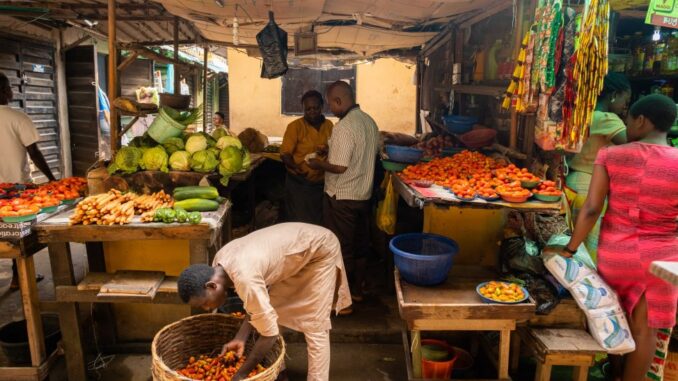
The increasing trend of inflation in Nigeria and the consequent impoverishment of the Nigerian populace have been very devastating to virtually every Nigerian.
The inflation figure which stood at 17.93 per cent in May 2021 is recorded to be among the highest of such values in the past four years, particularly since the inception of the Buhari administration in 2015.
According to the Organised Private Sector (OPS), inflation is perhaps the biggest poverty accelerator in the economy due to its weakening effect on purchasing power. The country’s headline inflation rate, according to data from the National Bureau of Statistics (NBS), rose from 11.98 per cent in December 2019 to 15.75 per cent at the end of 2020. It went as high as 18.12 per cent in April 2021 before settling at 17.93 per cent in May 2021. Though these figures are generally accepted in official circles, a number of Nigerians are of the opinion that the inflation situation is actually underestimated by these official figures and that they are worse than these figures suggest.
Prices of many consumer items in the marketplace have actually increased by over 100 per cent in the past six months, particularly for food items. Galloping inflation is compounding the poverty woes of Nigerians. Many Nigerians are crying and virtually dying slowly. There is misery virtually everywhere in the land.
The recent World Bank report on “Nigeria Development Update (NDU)” affirms that poverty has increased in Nigeria to the extent that, at least seven million Nigerians have been pushed into poverty due to the rising inflation in recent times. The rising trend of food prices has been depleting the already meagre incomes of the average Nigerian household and thus invariably increasing the incidence of criminality in society. This is more so when the rate of unemployment is also increasing.
Actually, the high rate of unemployment in the country, in the light of increasing inflation, has exacerbated the level of poverty in Nigeria in the past few years. The current unpalatable growth of unemployment in the country is indeed a time bomb that could explode in the not too distant future with unpleasant consequences for the state of insecurity and the growth of organised economic activity in the country.
These inflation data from the NBS and the World Bank do not justify the recent claims by President Muhammadu Buhari in his Democracy Day address to the nation that his administration has lifted 10.5 million persons out of poverty. Many have wondered how the President came about this figure. Could it be that sharing a stipend of N5,000 to the less privileged over a few months is equated to the reduction of poverty? Does that amount to taking them out of poverty?
A close look at the country’s food inflation shows that it grew from a single-digit figure of 9.5 per cent in 2015 to 19.73 per cent in 2017, fell slightly to 13.8 per cent in 2019 and rose sharply to 22.7 per cent in 2021. For many food items, prices have continued to rise, even on a monthly basis. The highest increases have been recorded for fish, garri, yam, fruits, eggs, meat, vegetables, bread and cereals and pharmaceuticals among other basic household commodities. This is the situation across different markets in the entire country. Where then did the President get his figures from? Real incomes have been falling since Buhari came into power in 2015 and more Nigerians getting poorer as the World Bank figures indicate. Nigerians are suffering. By these unfavourable developments, the country has simply consolidated its position as the poverty capital of the world.
Issues of inflation are very critical in the design of monetary policy across the world. In fact, the main reason why central banks exist, among others, is the maintenance of price stability in the country. Hence the core role of the monetary policy committees of central banks across the world is the maintenance of price stability. Uncontrolled inflation makes the average worker poorer, particularly for those on fixed wages. If not well managed, inflation often creates a spiral that works against enhanced productivity in the economy with a massive erosion of monetary value in the system. Hence a key measure of the successful performance of central banks across the world is the extent to which they keep inflation at a tolerable level. On its part, the World Bank is of the opinion that government should identify more flexible options for borrowing to finance its programmes, eliminate fuel subsidy and design a sequence of reforms to mobilise resources domestically for the financing of development. Government should critically evaluate these recommendations to determine what would be feasible given the country’s present economic and political circumstances.
Overall, the Federal Government would need to address the causative factors of this intolerable increase in prices of commodities. It should address the intractable security challenge the country is going through. This is a major factor here. Others include the costs of energy, the high costs of transportation, rapid depreciation of the naira against foreign currencies and other supply-side challenges. It is unfortunate, though hardly surprising, that the economy is collapsing almost at the same rate the polity is failing. Government must live up to its responsibility and take the right steps.
END

Be the first to comment